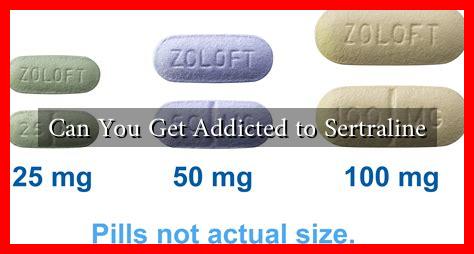-
Table of Contents
Can You Get Addicted to Sertraline?
Sertraline, a selective serotonin reuptake inhibitor (SSRI), is commonly prescribed to treat depression, anxiety disorders, obsessive-compulsive disorder (OCD), and post-traumatic stress disorder (PTSD). While it is effective for many, questions often arise regarding the potential for addiction. This article explores the nature of sertraline, its effects, and whether it can lead to addiction.
Understanding Sertraline
Sertraline works by increasing the levels of serotonin in the brain, a neurotransmitter that plays a crucial role in mood regulation. By preventing the reabsorption of serotonin, sertraline helps improve mood and alleviate symptoms of anxiety and depression.
Is Sertraline Addictive?
To address the question of addiction, it is essential to differentiate between physical dependence and psychological addiction. Here’s a breakdown:
- Physical Dependence: This occurs when the body adapts to a drug, leading to withdrawal symptoms if the drug is suddenly discontinued. SSRIs like sertraline do not typically cause physical dependence in the same way substances like opioids or alcohol do.
- Psychological Addiction: This refers to a compulsive need to use a substance for its psychological effects. While some individuals may feel they need sertraline to function, this is not the same as addiction.
Research indicates that sertraline is not considered addictive. According to a study published in the Journal of Clinical Psychiatry, SSRIs do not produce the euphoric high associated with addictive substances, making them less likely to be misused.
Withdrawal Symptoms and Discontinuation
While sertraline is not addictive, some individuals may experience withdrawal symptoms when discontinuing the medication. These symptoms can include:
- Dizziness
- Nausea
- Fatigue
- Insomnia
- Flu-like symptoms
To minimize withdrawal effects, healthcare providers often recommend tapering off the medication gradually rather than stopping abruptly. A case study published in the American Journal of Psychiatry highlighted the importance of a structured discontinuation plan to reduce the risk of withdrawal symptoms.
Potential for Misuse
Although sertraline is not addictive, there are instances where individuals misuse it. This can occur when someone takes higher doses than prescribed or uses it without a prescription. Factors contributing to misuse may include:
- Desperation for relief from mental health symptoms
- Misunderstanding of the medication’s effects
- Co-occurring substance use disorders
It is crucial for patients to communicate openly with their healthcare providers about their experiences with sertraline to ensure safe and effective treatment.
Conclusion
In summary, sertraline is not considered an addictive substance in the traditional sense. While it can lead to withdrawal symptoms if discontinued abruptly, it does not create the compulsive behaviors associated with addiction. Understanding the nature of sertraline and its effects can help patients use it safely and effectively. If you or someone you know is struggling with mental health issues or concerns about medication use, it is essential to seek guidance from a qualified healthcare professional.
For more information on SSRIs and their effects, you can visit the National Alliance on Mental Illness (NAMI) website.

